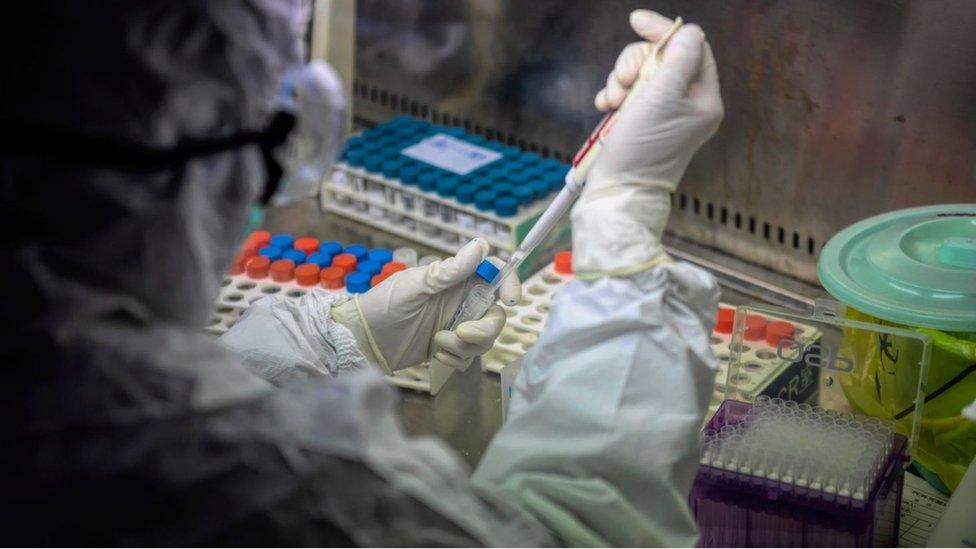Croke Park: From GAA battles to the fight against coronavirus
- Published
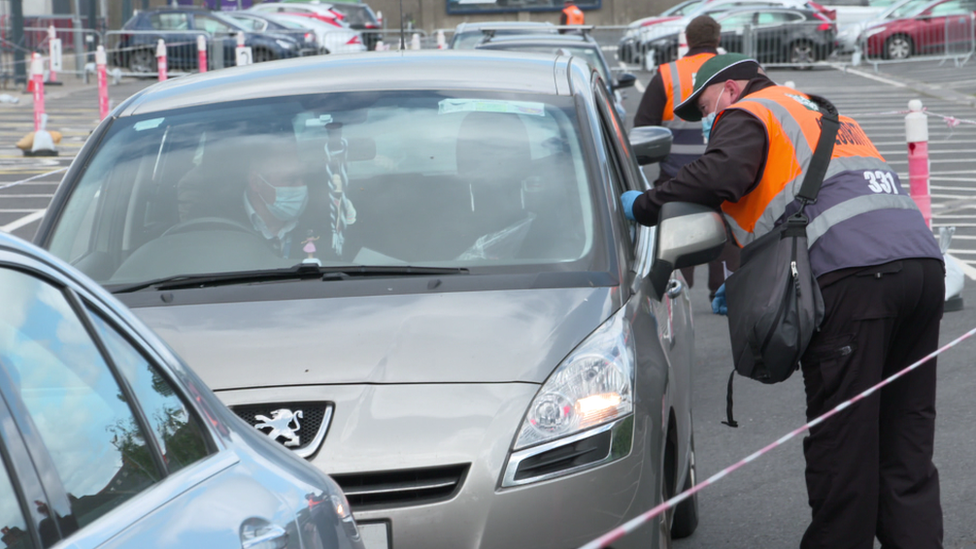
Ireland's biggest and most famous sports stadium, Croke Park, is being used as a testing centre for Covid-19.
The journey to get tested at the ground, where the uniquely Irish sports Gaelic football, hurling and camogie are played, begins with a GP assessment by phone.
If you are positive or presumed Covid-19 positive and need GP care, you will be given an appointment at an assessment unit like the hub at Dublin City University (DCU) where a team of doctors and nurses work together.
There they are examined by staff wearing full PPE.
For some it is a scary experience, but nurses try to minimise the fear.
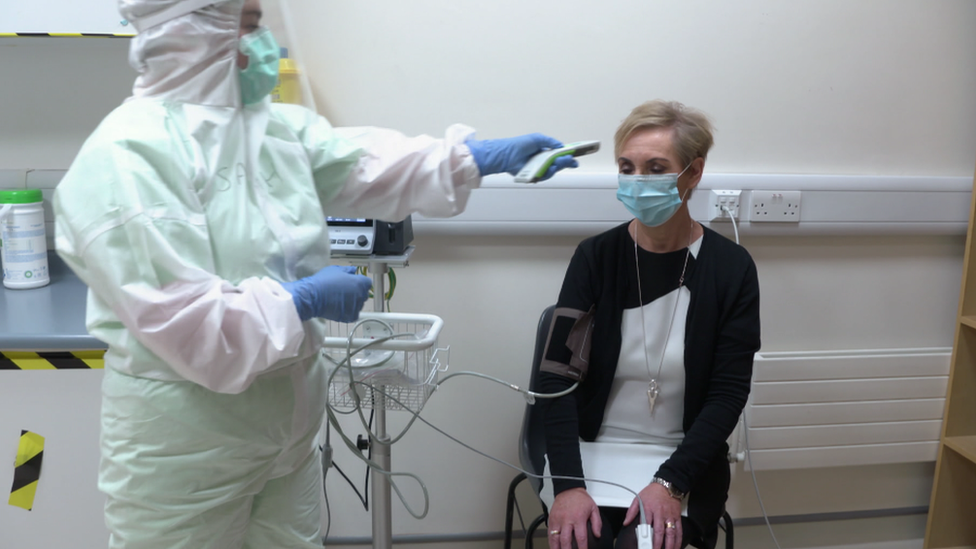
First a patient suspected by a GP of having coronavirus must go to an assessment unit, like the hub at Dublin City University
Second wave 'almost inevitable'
Maria Flaherty, the clinical nurse lead, says: "We put our names across the PPE so that the patients know what our names are and we're as friendly and as warm as we possibly can be because we want our patients to feel secure and happy in the environment."
Doctors here say that despite the relaxation in the Republic of Ireland's Covid-19 restrictions, a second wave of the virus is almost inevitable.
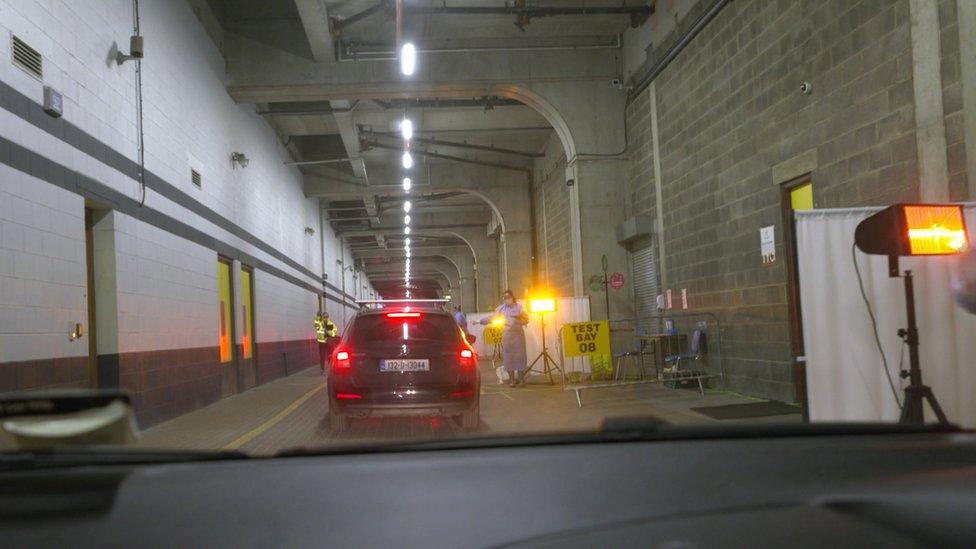
"It will probably happen because history teaches us that, but we have the power in our communities to make a difference and to flatten that curve a second time," according to Dr Matt Ó Faoláin, the GP lead at the DCU Hub.
The overwhelming majority of patients examined at DCU are then sent to one of the country's sporting shrines.
Every summer, fans at Croke Park are used to seeing two teams battle on the pitch for victory and supremacy.
But now another battle is taking place on the GAA's premises - testing in the fight against Covid-19.
There's a drive-through for testing.
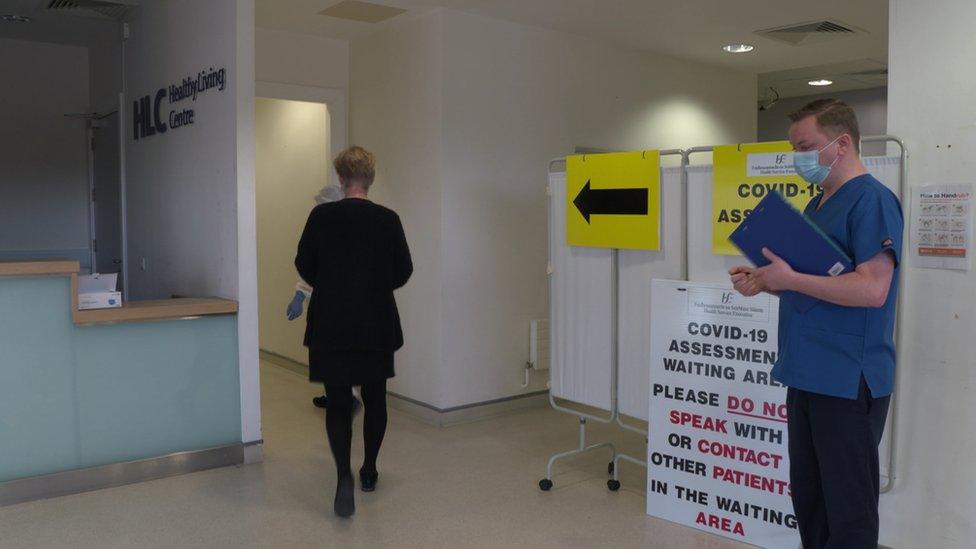
First a patient suspected by a GP of having coronavirus must go to an assessment unit like the hub at Dublin City University (DCU)
It takes eight minutes from arrival - when patients are given face masks to wear - to departure from the tunnel below ground and not far from the pitch.
There are nine bays for testing.
Nobody gets to see the pitch or inside the empty stadium, making it an unusual Croke Park experience.
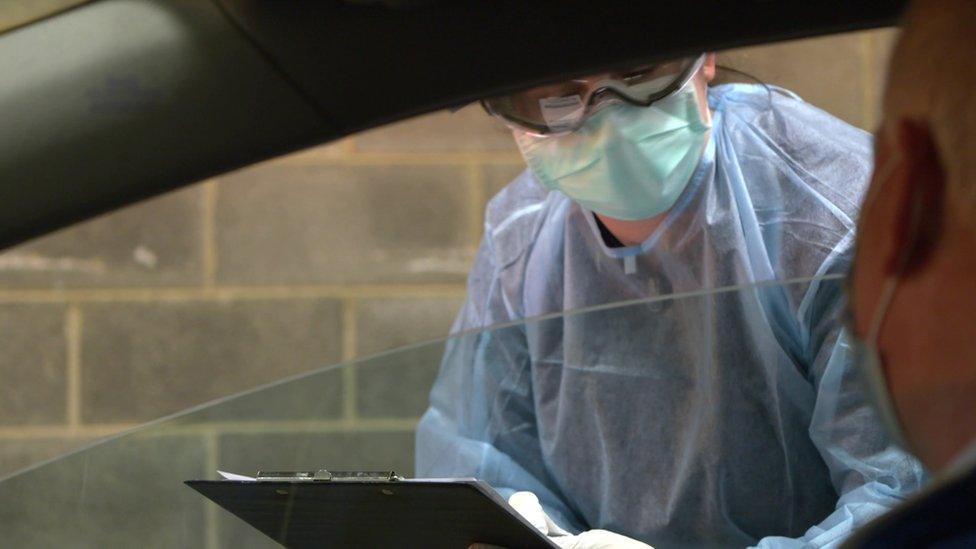
Ciaran Lanigan, one of two clinical nurse leads there, says: "I guess that everybody that comes through here is usually coming here to see a football match or going to a concert, whereas this is a much more serious procedure."
'Car batteries running low'
Testers say the lockdown has taken its toll on some of the patient's cars passing through.
"It's not very pleasant, unfortunately, for the individual whose car breaks down.
"We've seen a fair few over the last couple of weeks because people aren't out and about so, their car batteries are running a little low," says Emma Fleming, the other clinical lead nurse at Croke Park.
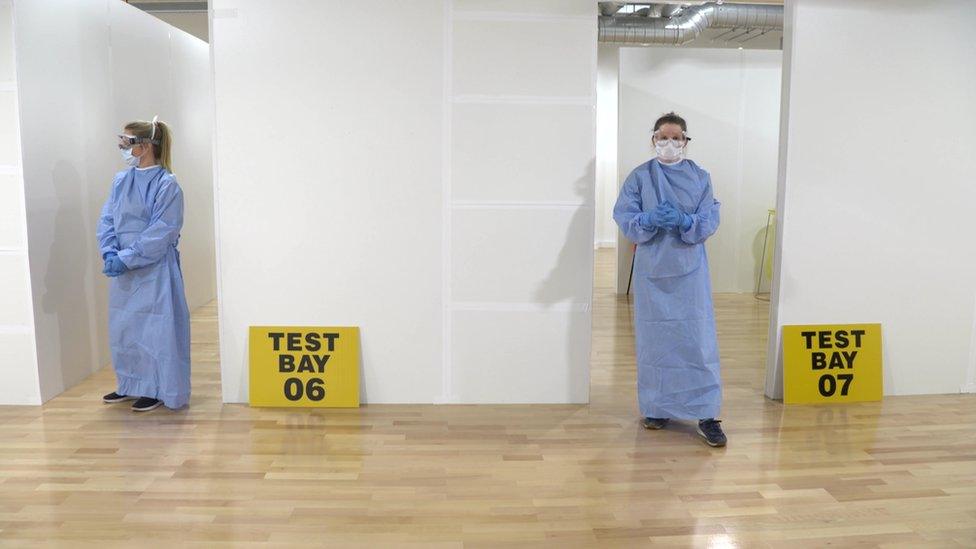
There's also walk-through testing at the Croke Park handball alley.
All in all, there is capacity for 800 daily tests but on average about 500 are carried out.
In the meantime, sports fans can only expectantly wait for the day when Gaelic games return to Croke Park, and normal service resumes.
- Published20 October 2020

- Published18 May 2020
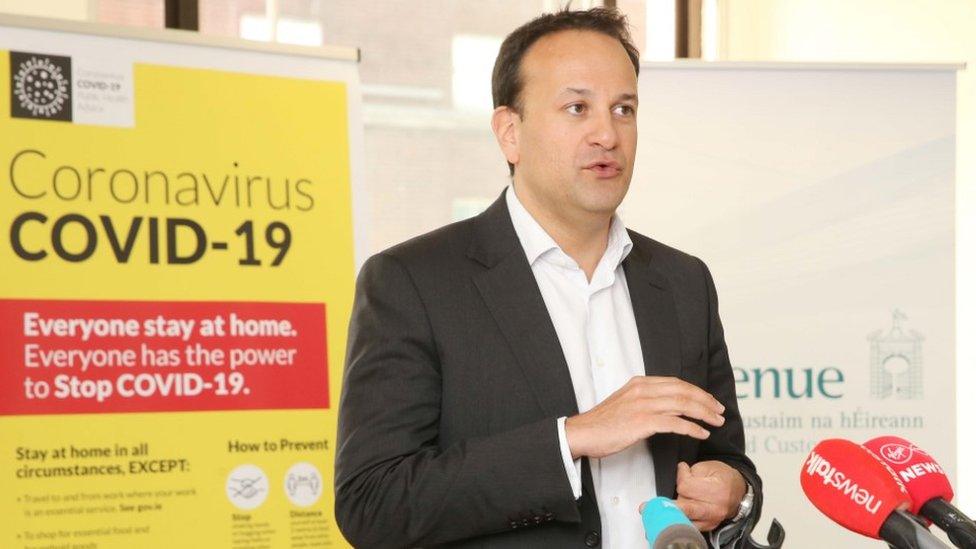
- Published29 February 2020
